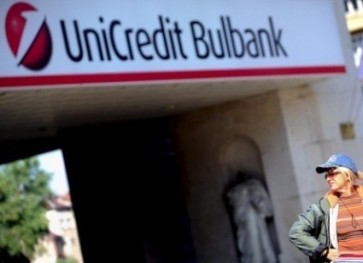BULGARIAN BANKS PIN HOPES ON SMES
Having entered the third year of languishing business demand for credit, Bulgarian banks are being forced to change their lending policies, as much as conditions would allow them to take risks, bankers say.
The past few months have been notable for an increase in offers to lend to small and medium-sized enterprises (SMEs), with various attempts at relaxation of terms, for example through guarantee schemes protecting the creditor in the event of loan losses.
Within four days, three of Bulgaria's top 10 banks launched offers for SMEs, trumpeting the advantageous aspects of their proposals. At the end of 2010, bankers predicted that the SME sector would find it hardest to recover because SMEs were hardest-hit by the crisis, making recovery difficult.
As with mortgage lending, banks are paying more attention to SMEs to spur demand from companies with growth potential, which ultimately makes them eligible for credit. But, according to bankers, these are the very companies that still hesitate to act because of the crisis.
According to industry representatives, banks have enough money to lend but it is important that SMEs move to capitalise on the opportunities produced by the crisis. Bankers say that business activity is now crucial for the revival of Bulgaria's economy.
But companies, especially SMEs, are particularly vocal in their complaints about tough collateral requirements and high interest rates. In the matter of collateral, the problem is that asset values are currently depressed. As for interest rates, they run at an average of 10 per cent for SME loans.
However, some banks are beginning to adopt a more liberal approach to evaluating projects, paying more attention to their feasibility and prospects and less to the client's credit history.
This is made possible by the existence of projects operating under guarantee schemes, for example those financed through the JEREMIE initiative or National Guarantee Fund (NGF) schemes. Still, observations by banks indicate that SME loan demand is currently running at levels double those of last year.
Among the latest SME offers is the one from Societe Generale Expressbank, which has a 6.95 per cent interest rate for euro-denominated loans with an NGF guarantee. Approval from the bank comes within 48 hours, while the NGF pronounces within five business days. Raiffeisenbank is offering loans with a fixed rate for the first year, charging 6.8 per cent annually for euro loans and seven per cent for leva-denominated loans.
UniCredit Bulbank has launched a service package dubbed Business Leader Import/Export. For a monthly fee of up to 50 leva, companies can get information about the financial stability of their prospective foreign partners and consulting services for market entry and planned investments. Among the banks that have mounted SME campaigns are First Investment Bank, DSK Bank, United Bulgarian Bank and Procredit Bank.






